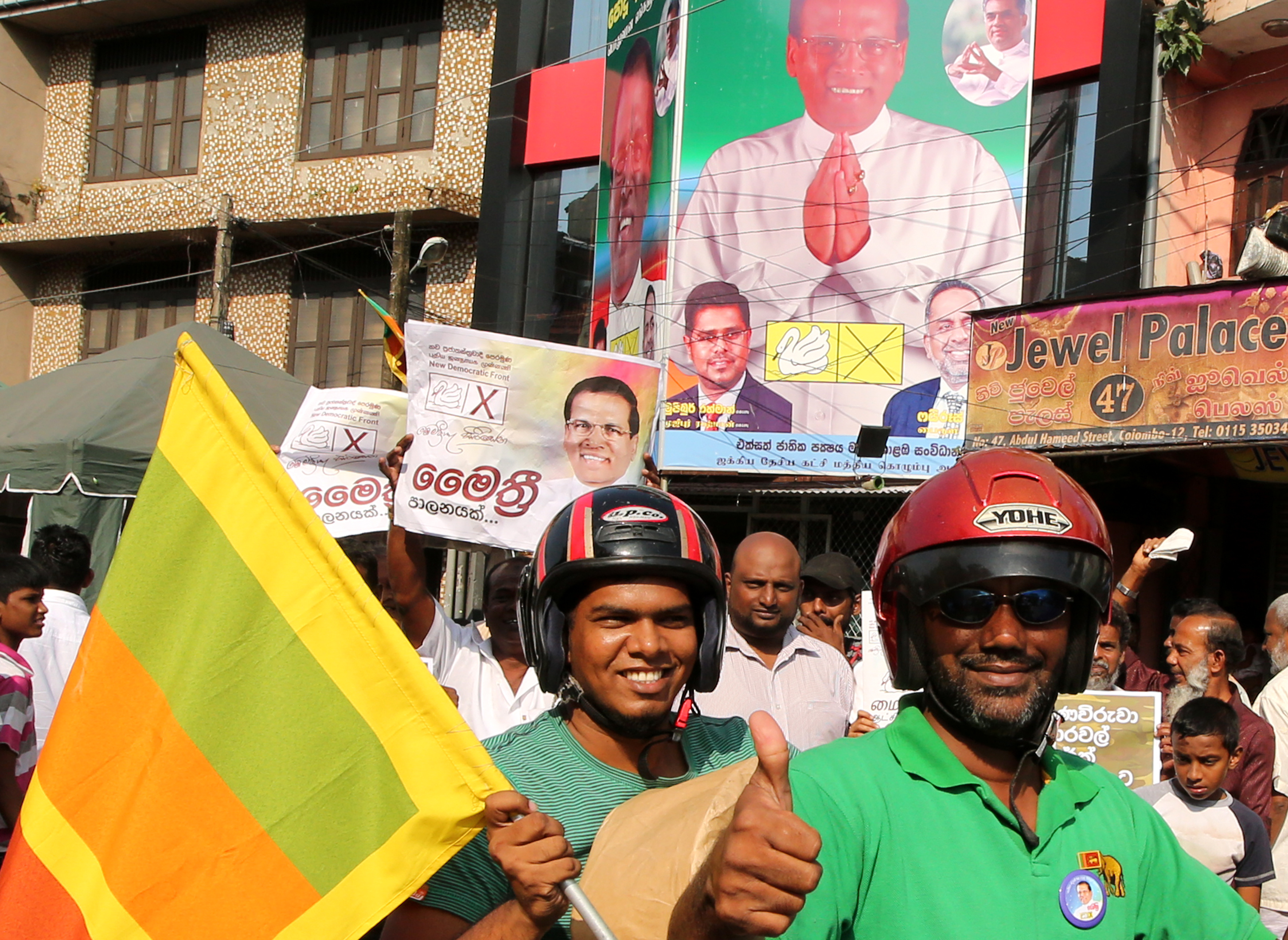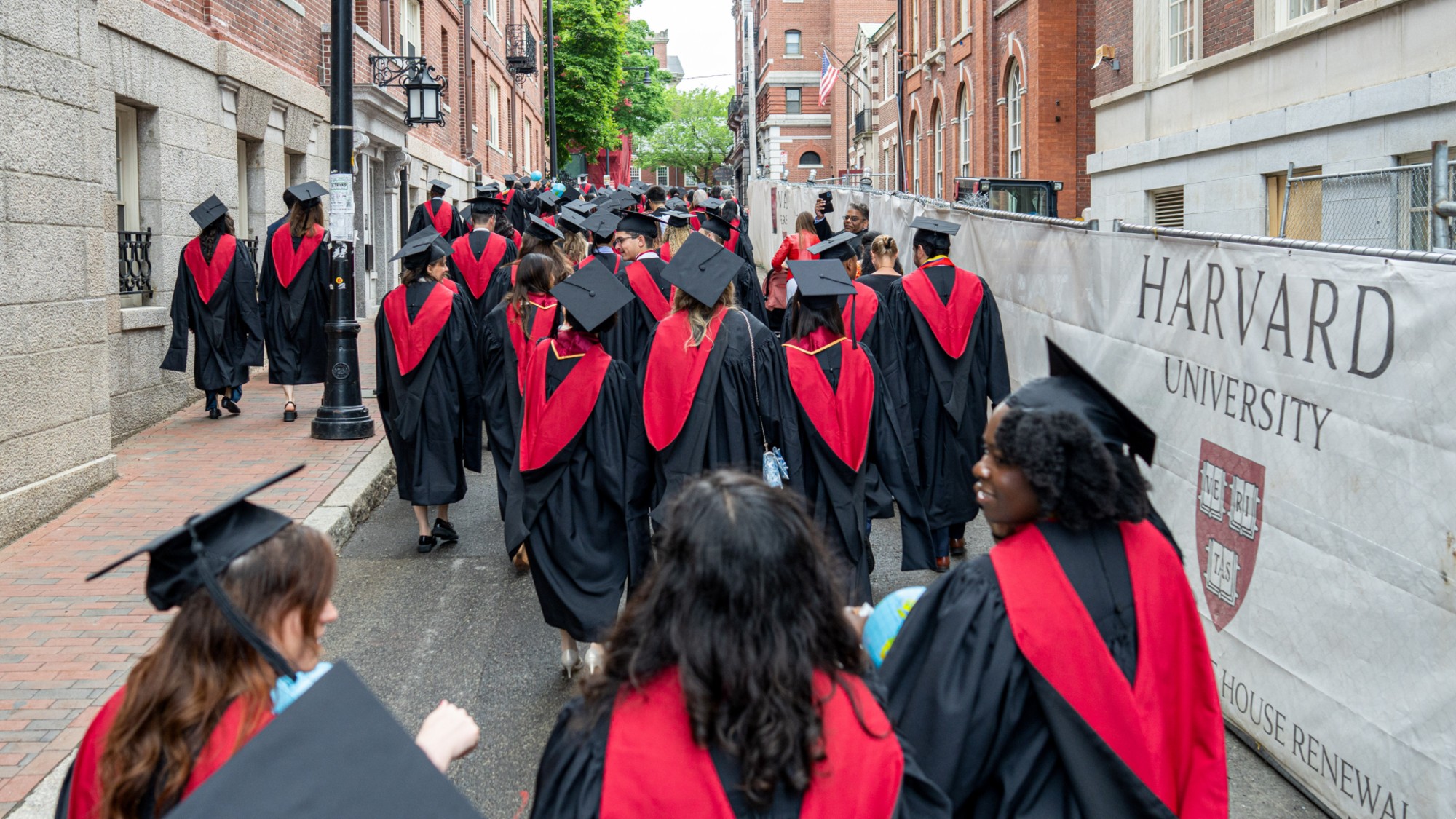Why the Sri Lanka election upset is a blow to China
So much for the so-called China Model

For Mahinda Rajapaksa, the now former president of Sri Lanka, last week's stunning election defeat must be a bit of a head-scratcher. Having ended the country's decades-long civil war against the Tamil Tigers in 2009, Rajapaksa was long believed to be one of the most secure leaders in Southeast Asia. In addition to crushing the Tamil rebellion, Rajapaksa presided over a country with a growing GDP, a rejuvenated tourism industry, and a bevy of maritime and infrastructure projects in the works. So what happened?
Friday's election at least temporarily pauses the outgoing leader's grand vision for Sri Lanka; a vision that, according to many critics, had become increasingly authoritarian, corrupt, and unduly cozy with Chinese money and muscle. For Beijing, Rajapaksa's defeat jeopardizes its "New Silk Road" scheme, not to mention a number of road, rail, and port projects in Sri Lanka — the crown jewel of which being the proposed $1.4 billion Colombo Port City project.
All of this is terribly inconvenient news for China, not to mention Rajapaksa, but it is great news for the liberal world order.
Subscribe to The Week
Escape your echo chamber. Get the facts behind the news, plus analysis from multiple perspectives.

Sign up for The Week's Free Newsletters
From our morning news briefing to a weekly Good News Newsletter, get the best of The Week delivered directly to your inbox.
From our morning news briefing to a weekly Good News Newsletter, get the best of The Week delivered directly to your inbox.
For years scholars and analysts have fretted over the threat China might pose to the decades-old international system, often referred to as the "Washington Consensus." Emphasizing free trade, fair elections, and deregulated markets, this system has more or less determined the rules of global trade and commerce since the end of World War II. In recent years, however, Chinese leaders have been travelling around the developing world offering a "no strings attached" alternative to the Western model. So long as contracts were met and manifests kept in order, Beijing would butt out and refrain from lectures on democracy, justice, and transparency.
Rajapaksa signed on the dotted line, offering Sri Lankans a Faustian bargain of prosperity and peace in exchange for obedience. Charges of iniquity, censorship, and nepotism were often shrugged off by the former president and his allies as little more than the grumblings of the marginalized urban elites. And China, keeping up its end of the bargain, has consistently rebuffed U.N. efforts to scrutinize and investigate alleged human rights violations committed during the Sri Lankan government's 2009 campaign against the Tamil Tigers.
But the perception of Sri Lanka as a vassal of Chinese whims didn't sit so well with ordinary Sri Lankans. Often referred to as Asia's oldest democracy, Sri Lanka has a long, complex history of colonialism. When Rajapaksa's former health minister and ally, Maithripala Sirisena, emerged as his likely opponent in this year's presidential race, a constellation of disgruntled parties aligned against the incumbent.
Sirisena — a reportedly parochial and reluctant politician — tapped into popular discontent during the election, often chiding Rajapaksa for putting massive debt on the backs of ordinary Sri Lankans all in the name of growth and progress. Running a populist campaign with a rural focus, Sirisena often railed against ubiquitous Chinese-financed projects, and pledged on more than one occasion to scrap the Colombo Port City plan. In his campaign manifesto, Sirisena wrote: "The land that the White Man took over by means of military strength is now being obtained by foreigners by paying ransom to a handful of persons." Sirisena's anti-colonial rhetoric, coupled with his vow to diminish executive powers, resonated not only with the nation's Sinhalese majority, but also with the restive Tamil minority, who turned out in droves for the upstart candidate.
Sign up for Today's Best Articles in your inbox
A free daily email with the biggest news stories of the day – and the best features from TheWeek.com
While last week's election may represent just a minor strategic hiccup for Beijing, the vote was unquestionably a blow to the so-called China Model — and it puts all would-be strongmen on notice: China may promise your regime "no strings" support, but it's your own people who will ultimately decide your fate, be it through the ballot or a bullet. Mahinda Rajapaksa — who reportedly asked that the Sri Lankan military intervene upon learning of his imminent election defeat — should consider himself lucky to have been defeated by the former.
Kevin B. Sullivan is a freelance editor and writer based in New York. He is the former managing editor of Real Clear World, and his work has appeared in The Huffington Post, Real Clear Politics, and the New York Daily News.
-
 Colleges are canceling affinity graduations amid DEI attacks but students are pressing on
Colleges are canceling affinity graduations amid DEI attacks but students are pressing onIn the Spotlight The commencement at Harvard University was in the news, but other colleges are also taking action
-
 When did computer passwords become a thing?
When did computer passwords become a thing?The Explainer People have been racking their brains for good codes for longer than you might think
-
 What to know before 'buying the dip'
What to know before 'buying the dip'the explainer Purchasing a stock once it has fallen in value can pay off — or cost you big
-
 The JFK files: the truth at last?
The JFK files: the truth at last?In The Spotlight More than 64,000 previously classified documents relating the 1963 assassination of John F. Kennedy have been released by the Trump administration
-
 'Seriously, not literally': how should the world take Donald Trump?
'Seriously, not literally': how should the world take Donald Trump?Today's big question White House rhetoric and reality look likely to become increasingly blurred
-
 Will Trump's 'madman' strategy pay off?
Will Trump's 'madman' strategy pay off?Today's Big Question Incoming US president likes to seem unpredictable but, this time round, world leaders could be wise to his playbook
-
 Democrats vs. Republicans: who are the billionaires backing?
Democrats vs. Republicans: who are the billionaires backing?The Explainer Younger tech titans join 'boys' club throwing money and support' behind President Trump, while older plutocrats quietly rebuke new administration
-
 US election: where things stand with one week to go
US election: where things stand with one week to goThe Explainer Harris' lead in the polls has been narrowing in Trump's favour, but her campaign remains 'cautiously optimistic'
-
 Is Trump okay?
Is Trump okay?Today's Big Question Former president's mental fitness and alleged cognitive decline firmly back in the spotlight after 'bizarre' town hall event
-
 The life and times of Kamala Harris
The life and times of Kamala HarrisThe Explainer The vice-president is narrowly leading the race to become the next US president. How did she get to where she is now?
-
 Will 'weirdly civil' VP debate move dial in US election?
Will 'weirdly civil' VP debate move dial in US election?Today's Big Question 'Diametrically opposed' candidates showed 'a lot of commonality' on some issues, but offered competing visions for America's future and democracy